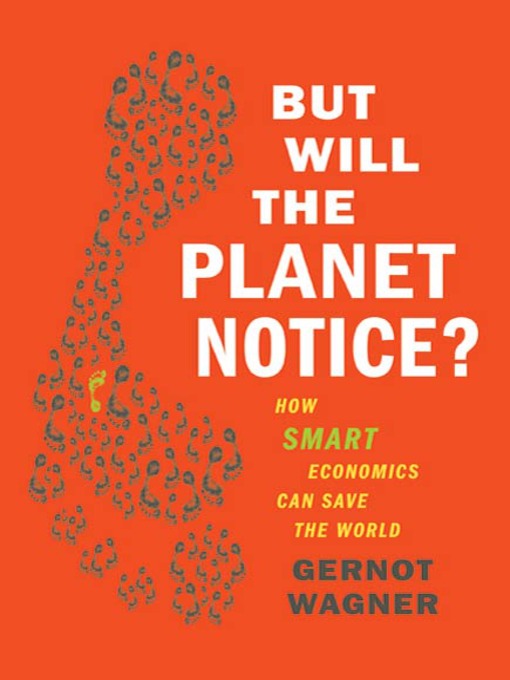
But Will the Planet Notice?
How Smart Economics Can Save the World
- اطلاعات
- نقد و بررسی
- دیدگاه کاربران
نقد و بررسی

May 30, 2011
You can replace all your light bulbs, bike to work, and OD on sustainably produced, locally sourced tofu, but much as you may try to minimize your environmental footprint, individual actions are largely useless. It will take a critical mass of people changing their behaviors to make real change, says economist Wagner, who argues for economic solutions to environmental crises. He challenges readers to consider how to corral the masses; what if the pope, for instance, advised the world's Catholics to reduce their personal carbon emissions? Papal edict aside, most significant change can only come from simple economic legislationâIreland's 2002 PlasTax, for instance, which reduced the demand for landfill-clogging plastic bags by 90%. Applying economics at both the macro level (making dirty energy more expensive to maintain) and the micro (increasing the cost of filling your car with gas) can help us create a greener world in a larger, more substantive way. Wagner's wry, witty prose brings rationality to an emotionally charged subject and urges us to take personal responsibility for the planet by demanding an economically sound solution to guiding market forces in the right direction, making it in our best interests to do the right thing.

September 15, 2011
Let economists rule and the earth be spared.
Environmental economist and debut author Wagner points out that no degree of personal environmental awareness will avert the global-warming chaos humanity now faces. With perhaps as little as a decade left for planet-saving action, it's going to take the combined cool-down actions of several billion people to make a difference. He argues that at this late date only an immediate, economist-driven redirection of market forces will make that happen. Call it cap and trade, new taxes, emission-reducing regulatory policies or outright bans on the worst contaminants, but the goal will only be achieved by putting a true cost on dumping in the atmosphere. The price of further atmospheric insult has to be high enough so that individuals by the billions, corporations and governments will do whatever it takes to avoid paying. Therein lies possible salvation, writes the author, whose light, quasi-witty touch belies the apocalyptic message, one that is hardly his alone. But he doesn't sound like he'll be storming the barricades, and even admits that we still could get lucky due to unforeseen vicissitudes. The population bomb of the 1970s, for example, turned out to be something of a dud, at least in wealthier countries. Wagner also cautions against sweeping environmental actions that turn out to be flawed. Phasing out incandescent light bulbs to save electricity and cut down on power-plant emissions doesn't look so smart, he writes, when we consider that the replacement bulbs, those energy-efficient compact fluorescents, contain environmentally troublesome mercury.
Great plans, but do the economists have an army?
(COPYRIGHT (2011) KIRKUS REVIEWS/NIELSEN BUSINESS MEDIA, INC. ALL RIGHTS RESERVED.)




دیدگاه کاربران